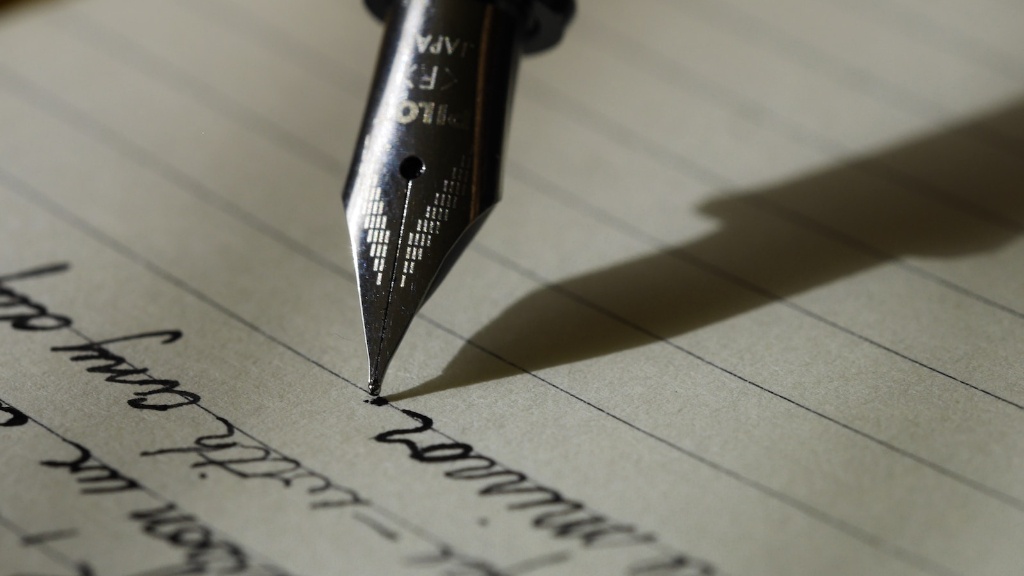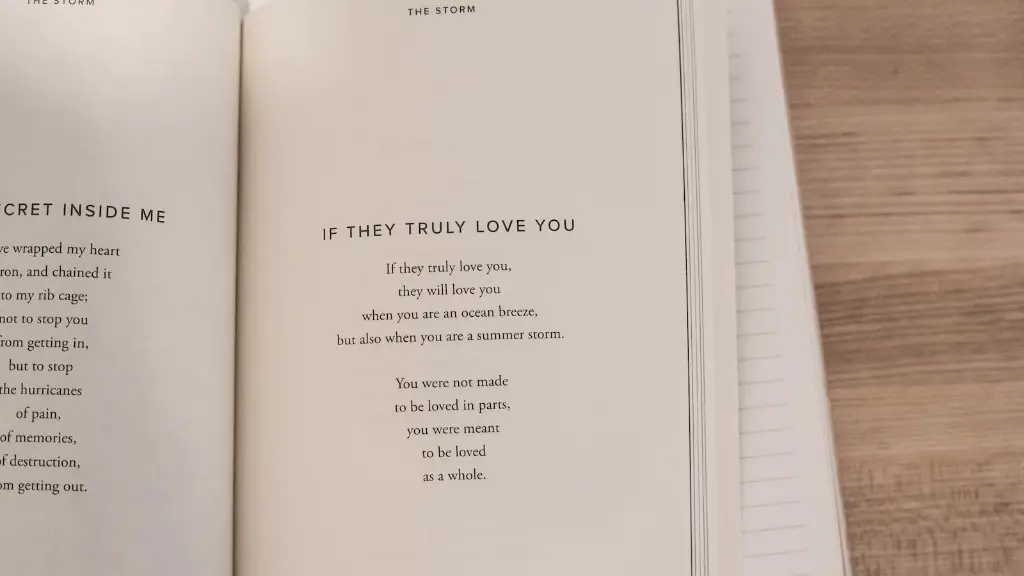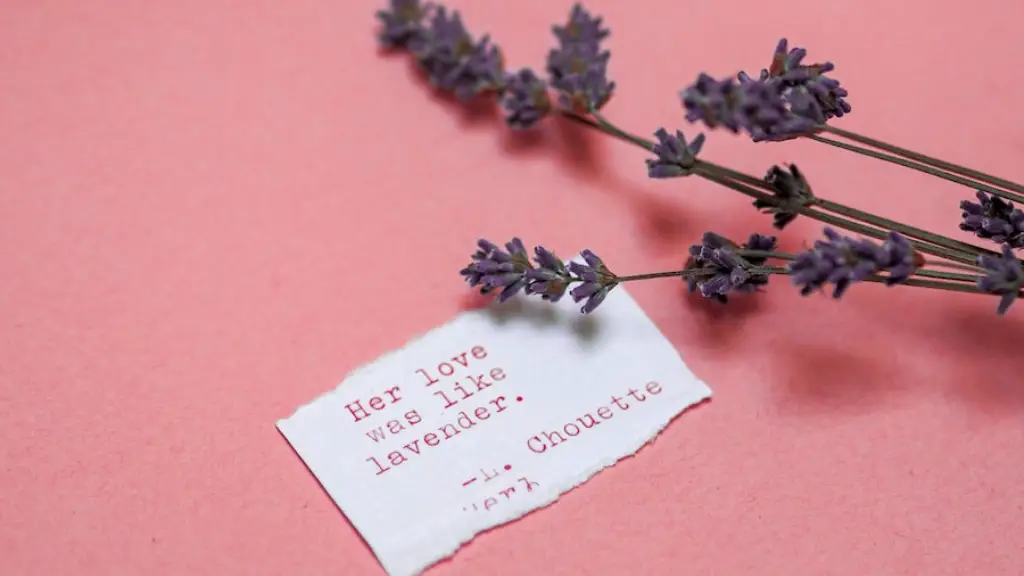The Beauty of Poetry
Poetry is one of the most ancient forms of writing and expression. Originating with oral stories shared long before writing was introduced, poetry eventually evolved into its own distinct art form. Through rhythmic use of language and symbolism, poetry is powerfully emotive and challenging.
From its ancient origins, poetry has served as one of humanity’s main means of communicating ideas and emotions. Whether shared in poetic form or through song, poetry has been an integral part of cultures across the world over the centuries. Before words were written down, it was shared orally and sang, preserving traditions and stories for generations.
At its most basic, poetry is made up of verses and lines formed by stringing words together in particular rhythms. These rhythms and the specific meaning of words chosen by the poet create a powerful emotional impact. The best poems can be both deeply meaningful as well as easily accessible to the reader.
By focusing on time, place, context, and emotion, poets can connect with the reader in a deep way. Poetry can move people to feel emotions and experience them in a unique way. It can also help readers discern the common elements of human experience and the individual beauty of each experience.
The impactful nature of poetry is why it is so widely read and performed today. Poetry is often performed today in art installations, at cafes, and even in traditional theater performances. It is still a favored form of communication for expressing thoughts and lets the reader experience something different from other forms of writing.
The Power of Imagery and Symbolism
One of the primary focuses of poetry is imagery and symbolism. This is why poets choose their words so carefully. Symbols and metaphors are designed to create strong imagery in the reader’s mind and provide a deeper, more meaningful experience.
The poet uses the words to paint a vivid picture in the reader’s head and evoke emotions. The symbols and images the poet chooses have a much deeper meaning than the words themselves. Every word, image, and symbol carries multiple meanings and layers of interpretation.
Symbols often have a complex psychosocial side to them that can really resonate with the reader. Even images as simple as a flower can represent growth and change, beauty, and delicate fragility all at once in a short phrase or verse.
Themes in Poetry
The themes and topics explored in poetry are vast. Love, relationships, war, nature, loss, and politics often appear in the works of poets. These are the broad topics the poet can work within, but underneath each of these topics is often another layer of themes or messages.
The poet has the power to address difficult topics and allow a reader to experience them in a deeply emotional and meaningful way. From classic authors like Shakespeare to modern poets like Maya Angelou, poetry speaks to us about the difficulties, joys, and complexities of life.
Interpretation and Creativity
Part of the power of poetry is its room for interpretation. When reading a poem, the reader often applies his own experiences and interpretations to the work. This makes it possible to have conversations on the same piece of poetry while still having different interpretations and reactions to it.
The poet can leave some things open to interpretation. By using symbols and metaphors, the poet can create a vivid world that carries multiple meanings and layers of understanding. This is also why poetry can be so creative. The poet needs to adhere to certain structure and rules but has freedom to create a unique experience for the reader.
Exploring Identity and Sense of Self
The poet can also use poetry to explore identity and sense of self. By exploring the poetic devices of imagery and symbolism the poet can delve into questions of identity and self-worth. The poet can use words to open a conversation about identity, power, and self-discovery.
Poetry can also be an expression of joy or celebration. The poet can create a narrative of celebration and understanding, of finding inner strength and joy. By combining multiple elements of poetry, the poet can share a highly personal story that is both deeply personal and universally accessible.
Process and Reflection
The process of writing a poem is also part of its power. Writing can be a form of meditation, a way to process difficult emotions and gain clarity on the writer’s thoughts and feelings. Poetry also gives us the power to reflect on past experiences and explore our own thoughts and feelings.
Writing poetry is a way to step back and reflect on our own experiences in a creative and non-judgmental way. It is also a powerful tool for self-exploration and understanding. Writing poetry allows the writer to explore emotions and experiences from different angles and gain a deeper understanding of their inner self.
Connection with Others
Writing is also a great way to connect with others. Poems can bridge the gap between different cultures and topics and open up conversations. Poets often incorporate the experiences of those around them, sharing stories of those close to them or of their country and culture.
This helps bring attention to the plight of vulnerable populations, encourages dialogue and understanding, and can draw attention to important topics. Poetry can also be a great way to bring attention to topics such as social justice or human rights, or simply to share a loved one’s story.
Conclusion
Poetry is one of the oldest forms of expression and has a vast range of topics and themes that can be explored. By fusing imagery and symbolism with personal stories, poetry can make connections between previously separate topics and cultures. Whether for reflection, for processing emotions, for connecting with others, or for simply enjoying a unique experience, poetry is a powerful and moving art form filled with beauty.


